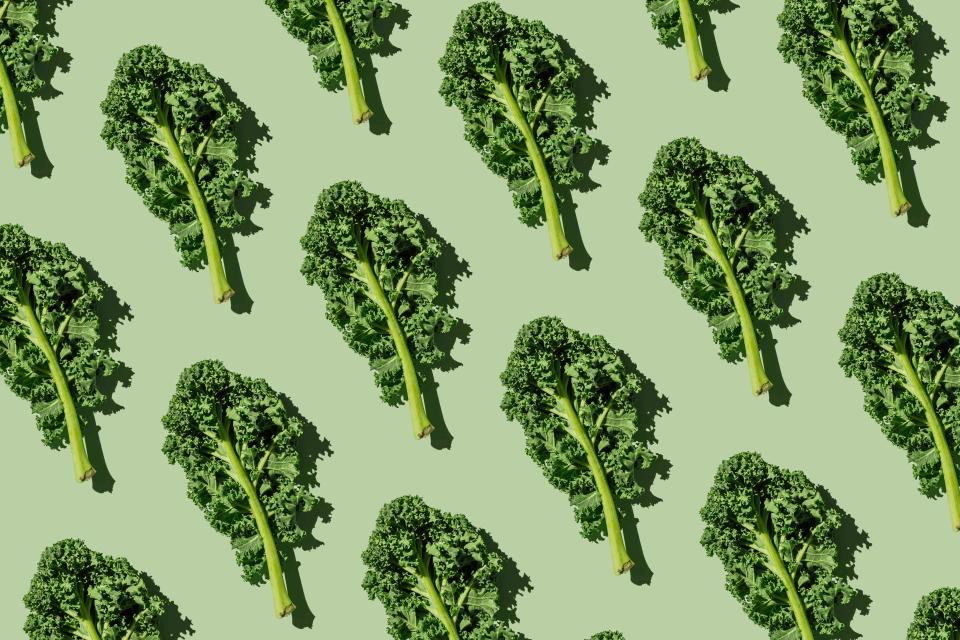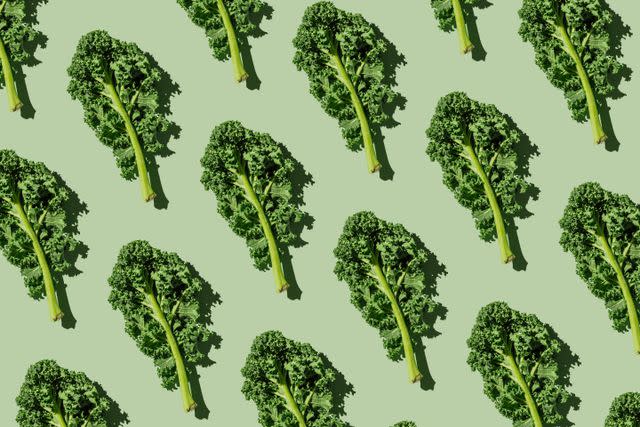10 Fruits and Vegetables That Last the Longest
Save money and cut down on food waste.

Tanja Ivanova/Getty Images
Grocery bills are higher than ever, and the last thing you want to do is toss out your pricey produce. We’ve all witnessed a salad-to-be disintegrate into mush as we neglect our greens in the crisper, but with a little planning, you can stock up on fruits and vegetables that last longer to make the most of your grocery shopping and create less food waste.
When shopping, opt for optimal freshness: try to source produce from a farmer’s market, CSA share, local garden, or other source. Newly harvested produce should last longer than produce potentially shipped across the country. At the supermarket, remember to grab from the back, where the freshest bunches of kale and newer apples are placed. When in doubt, check the expiration date on any packaged produce, and go for the latest possible one.
Add these long lasting fruits and vegetables to your shopping list, and you may even be able to reduce shopping trips, expenses, and save the planet a little (less gas and less food waste is a win-win).
Related:What's the Difference Between Fruits and Vegetables? An Expert Weighs In

Tanja Ivanova/Getty Images
Fruits That Last the Longest
Fruit isn’t cheap, and you definitely want to be able to enjoy all the fruit you buy before it’s too late. Picking fruits that last the longest, including citrus and heartier berries, can help you always have fresh, unspoiled fruit at the ready.
Apples
All types of apples can stay crisp for months, especially if you just plucked them off a tree. Or from the supermarket, really. Apples stored on the countertop will last for about a week (if kept away from direct sunlight), but refrigerated whole apples wrapped in a damp paper towel can keep in the crisper for about six weeks.
Oranges
Those aesthetic bowls of oranges seemingly on everyone’s cool countertop? Skip it. If you want your oranges to last for two weeks or more, they need to be refrigerated. Keep them loose or in a mesh bag, so they can breathe, in a crisper drawer, rotating every so often, to keep oxygen flowing. This method works for all types of citrus, including grapefruits and lemons.
Cantaloupe
Cantaloupe can last for weeks, depending on how ripe it is when you buy it. Let it ripen on a countertop, or slow the ripening process by storing the whole melon in your fridge. Once the melon is ripe, it will last for several more days before it’s cut. And once you cut into your cantaloupe, the slices will last for 3-4 more days when stored in an airtight food storage container. Freeze any leftovers once they start going soft for upcoming smoothies.
Strawberries
One of the longest lasting berries, fresh strawberries can be good for a week or longer. Start by examining your package of strawberries for any signs of spoilage and toss any bad ones. Then, line an airtight container or jar with a dry paper towel, add strawberries on top, and cover. Store in the fridge.
Related:11 Sweet Strawberry Recipes That Taste Like Summertime
Blueberries
Ten day old blueberries can still be really, really good! You’ll want to store your blueberries in a container with airflow, such as the airy pint the fruit comes in. Line it with a paper towel to absorb extra moisture, and keep it on a shelf in the fridge for the best airflow to prevent any mold.
Vegetables That Last the Longest
In general, the heartier the vegetable, the longer it will last. That is, delicate leaves and softer veggies, such as green leaf lettuce and fresh herbs, will be the first to go bad in your fridge – eat these first. Vegetables that last the longest tend to grow underground, and many can be stored in the dark for weeks – their natural habitat!
Potatoes
Potato cellars are all about keeping these long lasting veggies alive, so you can nosh on a fresh potato all year round. Potatoes in any cool, dry pantry should last a few months.
Squash
There’s a reason you’re always seeing squash on someone’s countertop - it lasts practically forever. Though technically it should be stored away from sunlight, winter squashes, such as acorn and butternut, can last for more than a month out of the fridge. Add to the fridge to extend their shelf life. Once cut, however, squash is only good for a few days. So enjoy it, or purée and freeze it, for later use.
Kale
If you suffer from squishy salad greens, opt for kale salads at home. When properly stored in the refrigerator, kale lasts up to one week, and possibly longer! Just like with lettuce, make sure you reduce excess moisture by storing the kale in paper towels. You can also store de-stemmed and ready-to-eat kale in sealed glass jars with water, to keep it hydrated and ready to eat. Wilted kale is easy to steam and cook, or blanch it and freeze it for later use.
Beets
Yet another root veggie that can offer weeks of lifespan, beets are a great item to stock up on. Whole beets will need just a bit of prep for weeks or even months worth of freshness. Cut off the greens, rinse and dry, wrapping in paper towels to remove moisture in the fridge. The beetroot, however, can now just be let loose in your crisper, and it will stay firm for up to two months.
Related:How to Cook Beets 8 Different Ways—Including Grilled, Roasted, and More
Carrots
Carrots can stay crisp for up to a month (or possibly longer) with proper care in your fridge. You’ll want to remove and wash any greens, storing them in paper towels and using them within four days. The carrots themselves, however, shouldn’t be washed or peeled, but stored in an airtight container or bag in the coldest part of the fridge.
For more Real Simple news, make sure to sign up for our newsletter!
Read the original article on Real Simple.

 Yahoo Movies
Yahoo Movies 
